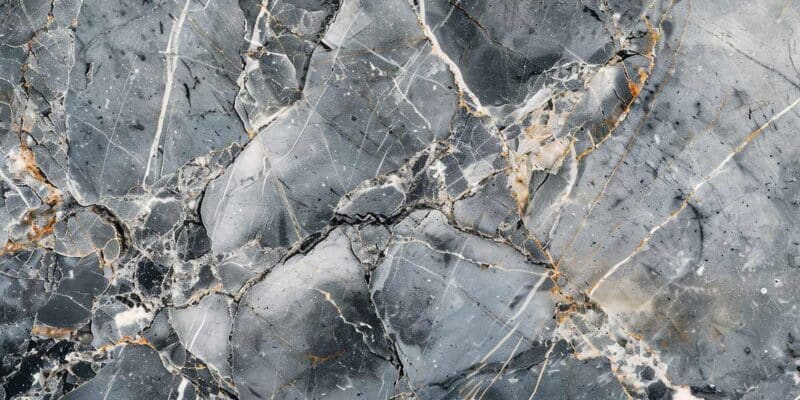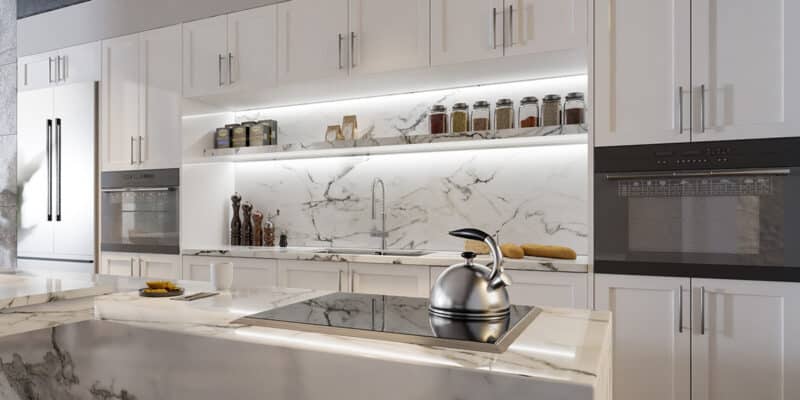Your kitchen countertops serve as the centerpiece of your culinary space, enduring daily wear and tear while enhancing the aesthetic appeal of the room. Over time, however, even the most resilient countertops can show signs of age, damage, or outdated style. Knowing when it’s time to upgrade or replace your kitchen countertops can breathe new life into your space and enhance both functionality and visual appeal. In this comprehensive guide, we’ll explore the telltale signs that indicate it’s time for a kitchen countertop renovation, empowering you to make informed decisions about revitalizing your culinary sanctuary.
When is it time for Kitchen Countertop Renovation?
1. Visible Wear and Tear
One of the most obvious signs that it’s time to upgrade or replace your kitchen countertops is visible wear and tear. Daily use, spills, scratches, and heat exposure can take a toll on even the most durable countertop materials over time. Look for signs of surface damage, such as chips, cracks, stains, or discoloration, that detract from the overall appearance of your countertops. If your countertops have become marred or damaged beyond repair, it may be time to invest in a renovation to restore their beauty and functionality.
2. Outdated Style or Design
Kitchen design trends evolve over time, and what was once considered stylish and modern may now appear outdated or out of step with current aesthetics. If your countertops feature an outdated style, color, or pattern that no longer complements your kitchen decor or personal taste, it may be time for a refresh. Upgrading to a more contemporary countertop material, such as quartz or marble, can instantly modernize your kitchen and enhance its overall design appeal.
3. Limited Functionality
Functionality is key when it comes to kitchen countertops, as they serve as the primary workspace for meal preparation, cooking, and entertaining. If your countertops lack sufficient workspace, storage, or functionality to meet your needs, it may be time for an upgrade. Consider investing in countertop materials that offer additional features such as integrated sinks, built-in cutting boards, or extended overhangs for seating, maximizing both form and function in your kitchen.
4. Difficulty in Cleaning and Maintenance
Over time, some countertop materials may become increasingly challenging to clean and maintain, leading to frustration and dissatisfaction with their appearance. If your countertops require excessive scrubbing, sealing, or maintenance to keep them looking clean and pristine, it may be worth considering an upgrade to a more durable and low-maintenance material. Modern countertop materials such as quartz or solid surface offer easy-to-clean surfaces that resist stains, scratches, and bacterial growth, making them ideal for busy households.
5. Structural Damage or Instability
Structural damage or instability in your countertops is a clear indication that they need to be replaced. Cracked or sagging countertops can pose safety hazards and compromise the integrity of your kitchen workspace. If you notice any signs of structural damage, such as cracks, warping, or separation at seams, it’s essential to address the issue promptly to prevent further damage and ensure the safety of your kitchen environment.
6. Changes in Lifestyle or Needs
As your lifestyle and needs evolve, so too should your kitchen countertops. If your current countertops no longer accommodate your culinary habits, lifestyle, or family size, it may be time for an upgrade. For example, if you’ve recently become an avid home chef and need more workspace for meal prep, or if you’re transitioning to an open-concept layout and want countertops that double as a breakfast bar, a renovation can help you create a kitchen that meets your evolving needs and preferences.
7. Decreased Property Value
Outdated or damaged countertops can detract from the overall value and appeal of your home, particularly if you’re considering selling in the near future. Potential buyers often prioritize kitchen upgrades, including countertops, when evaluating a property’s value and desirability. Investing in new countertops can enhance the marketability of your home, increase its resale value, and attract potential buyers, making it a worthwhile investment in the long run.
8. Desire for Energy Efficiency or Sustainability
With increasing awareness of environmental issues and energy efficiency, many homeowners are seeking sustainable and eco-friendly options for their kitchen renovations. If you’re passionate about reducing your carbon footprint and minimizing environmental impact, consider upgrading to countertops made from recycled materials or sustainably sourced natural stone. Eco-friendly countertop materials not only contribute to a greener home but also offer durability, style, and performance.
Kitchen Countertop Renovation – Conclusion
Upgrading or replacing your kitchen countertops is a significant investment that can transform the look and functionality of your culinary space. By paying attention to signs of wear and tear, outdated style, limited functionality, difficulty in cleaning, structural damage, changes in lifestyle or needs, decreased property value, and desire for energy efficiency or sustainability, you can determine when it’s time for a kitchen countertop renovation. Whether you’re looking to modernize your kitchen, increase property value, or improve functionality, a well-planned countertop renovation can breathe new life into your space and enhance your enjoyment of one of the most important rooms in your home.


